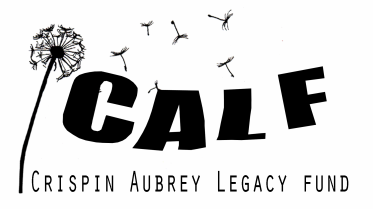ABC Trial and Archive
In the early seventies, Crispin became a leading figure in the campaign to prevent the government deporting two Americans on national security grounds - former CIA case officer Philip Agee and Time Out journalist Mark Hosenball - after Phillip Agee had exposed CIA malpractices and Hosenball and Duncan Campbell co-wrote the first ever article on the GCHQ intelligence agency.
Then, whilst researching an article for Time Out to expose British government secrets, he was arrested with Duncan Campbell under the Official Secrets Act for receiving classified information from John Berry, a former signals intelligence operator. Crispin Aubrey, John Berry and Duncan Campbell appeared in court in what was known as the ABC trial (an acronym of their surnames). The case became notorious for a number of reasons, including jury vetting after the defence discovered that the jury foreman was a former SAS officer and that two other jurors had signed the official secrets act, as well as the prosecution of journalists under section 1 of the Official Secrets Act. Following the trial, Crispin wrote the book Who’s Watching You: Britain's Security Service and the Official Secrets Act (1981).
For a more detailed account of the ABC trial see Roy Greenslade's piece in The Guardian.
In 2019, with the support of the Garden Court’s Special Fund, the Crispin Aubrey Archive on the ABC Official Secrets case was launched by Crispin Aubrey Legacy Fund (CALF) and Statewatch. The Archive is held in the Statewatch office and comprises trial statements and documents, plus posters and the activities of both of the ABC Defence Committee and the preceding Agee-Hosenball Defence Committee (Philip Agee and Mark Hosenball were both US citizens deported from the UK just before the ABC arrests) . Plus highly detailed files on the background to the case, e.g. SIGINT and the Peace News/NUJ/ Leveller Colonel "B" trial which arose out naming the Colonel as a witness at the ABC trial. The archive includes Crispin's paperwork about the ABC trial - from his handwritten notes of the trial and minutes of campaign meetings and flyers to campaign posters and ephemera from the ABC Campaign. To browse the special collection on the ABC Case online click here
Then, whilst researching an article for Time Out to expose British government secrets, he was arrested with Duncan Campbell under the Official Secrets Act for receiving classified information from John Berry, a former signals intelligence operator. Crispin Aubrey, John Berry and Duncan Campbell appeared in court in what was known as the ABC trial (an acronym of their surnames). The case became notorious for a number of reasons, including jury vetting after the defence discovered that the jury foreman was a former SAS officer and that two other jurors had signed the official secrets act, as well as the prosecution of journalists under section 1 of the Official Secrets Act. Following the trial, Crispin wrote the book Who’s Watching You: Britain's Security Service and the Official Secrets Act (1981).
For a more detailed account of the ABC trial see Roy Greenslade's piece in The Guardian.
In 2019, with the support of the Garden Court’s Special Fund, the Crispin Aubrey Archive on the ABC Official Secrets case was launched by Crispin Aubrey Legacy Fund (CALF) and Statewatch. The Archive is held in the Statewatch office and comprises trial statements and documents, plus posters and the activities of both of the ABC Defence Committee and the preceding Agee-Hosenball Defence Committee (Philip Agee and Mark Hosenball were both US citizens deported from the UK just before the ABC arrests) . Plus highly detailed files on the background to the case, e.g. SIGINT and the Peace News/NUJ/ Leveller Colonel "B" trial which arose out naming the Colonel as a witness at the ABC trial. The archive includes Crispin's paperwork about the ABC trial - from his handwritten notes of the trial and minutes of campaign meetings and flyers to campaign posters and ephemera from the ABC Campaign. To browse the special collection on the ABC Case online click here

